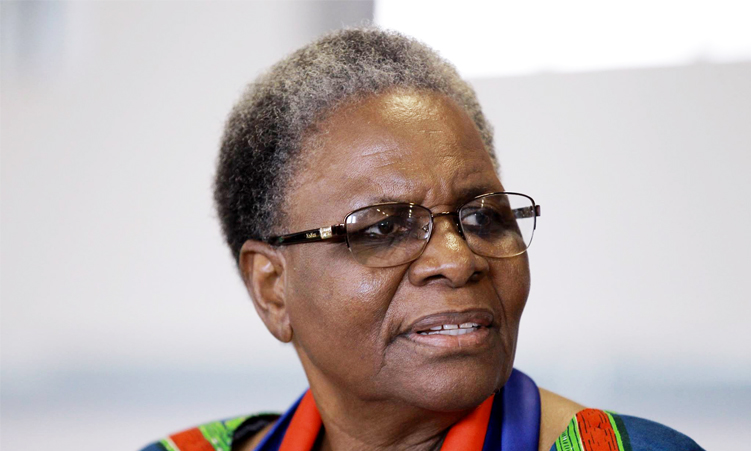PARIS – French teachers, postal workers and other civil servants joined forces with protesting transport workers yesterday to challenge President Nicolas Sarkozy’s plans to reform the economy.
The nationwide protests over issues ranging from pension reform to the cost of living disrupted schools, trains, postal services and airports. They are the biggest threat to Sarkozy’s planned reforms since he was elected president in May.Asked if the week-old transport strike could hurt the economy, Public Accounts Minister Eric Woerth said: “Not over several days.But if it lasted longer, it could obviously have consequences.”When you decide not to work, when you prevent goods from circulating in a certain way, when you prevent people from getting to places, obviously that can be a problem at some point,” Woerth told France Inter radio.He said strikes were costing France US$439 million a day.The rail workers oppose Sarkozy’s plan to scrap some public sector pension rights.They voted to continue the strike they began last week so that it overlapped with Tuesday’s one-day walk out by civil servants.Public sector workers object to Sarkozy’s plan not to replace some retiring civil servants, a move which he hopes will cut costs, and say their purchasing power is being eroded.”A small group of people are holding the country hostage.It’s lamentable,” said 56-year-old commuter Guy Cousserant.Opinion polls show the rail strike is unpopular with most French voters.But the government is also under pressure to show it is working for a breakthrough and the polls show unhappiness with both Sarkozy and Prime Minister Francois Fillon.Sarkozy, who has built a reputation as a hands-on president involved in all policy areas, has stayed unusually quiet over the strike.Government spokesman Laurent Wauquiez said Sarkozy might express himself on the issue later this week.International flights were cancelled and delayed as air traffic control staff at some airports went on strike.Students blocked access to buildings at dozens of campuses across France in protest at reforms granting more autonomy to universities.Some 58 per cent of high school teachers participated in a strike over job cuts, a union official said.Newspaper distributors also began a one-day strike over planned restructuring, and striking energy workers cut 5,500 megawatts (MW) or about 8.7 per cent of production capacity at EDF nuclear plants at 0900 GMT, the leading energy union said.State rail operator SNCF has said the number of people involved in the rail strike has fallen since last week, but services have continued to be disrupted.As many commuters changed from trains to cars, traffic jams stretched over more than 300 km across France on Tuesday morning.Nampa-ReutersThey are the biggest threat to Sarkozy’s planned reforms since he was elected president in May.Asked if the week-old transport strike could hurt the economy, Public Accounts Minister Eric Woerth said: “Not over several days.But if it lasted longer, it could obviously have consequences.”When you decide not to work, when you prevent goods from circulating in a certain way, when you prevent people from getting to places, obviously that can be a problem at some point,” Woerth told France Inter radio.He said strikes were costing France US$439 million a day.The rail workers oppose Sarkozy’s plan to scrap some public sector pension rights.They voted to continue the strike they began last week so that it overlapped with Tuesday’s one-day walk out by civil servants.Public sector workers object to Sarkozy’s plan not to replace some retiring civil servants, a move which he hopes will cut costs, and say their purchasing power is being eroded.”A small group of people are holding the country hostage.It’s lamentable,” said 56-year-old commuter Guy Cousserant.Opinion polls show the rail strike is unpopular with most French voters.But the government is also under pressure to show it is working for a breakthrough and the polls show unhappiness with both Sarkozy and Prime Minister Francois Fillon.Sarkozy, who has built a reputation as a hands-on president involved in all policy areas, has stayed unusually quiet over the strike.Government spokesman Laurent Wauquiez said Sarkozy might express himself on the issue later this week.International flights were cancelled and delayed as air traffic control staff at some airports went on strike.Students blocked access to buildings at dozens of campuses across France in protest at reforms granting more autonomy to universities.Some 58 per cent of high school teachers participated in a strike over job cuts, a union official said.Newspaper distributors also began a one-day strike over planned restructuring, and striking energy workers cut 5,500 megawatts (MW) or about 8.7 per cent of production capacity at EDF nuclear plants at 0900 GMT, the leading energy union said.State rail operator SNCF has said the number of people involved in the rail strike has fallen since last week, but services have continued to be disrupted.As many commuters changed from trains to cars, traffic jams stretched over more than 300 km across France on Tuesday morning.Nampa-Reuters
Stay informed with The Namibian – your source for credible journalism. Get in-depth reporting and opinions for
only N$85 a month. Invest in journalism, invest in democracy –
Subscribe Now!






